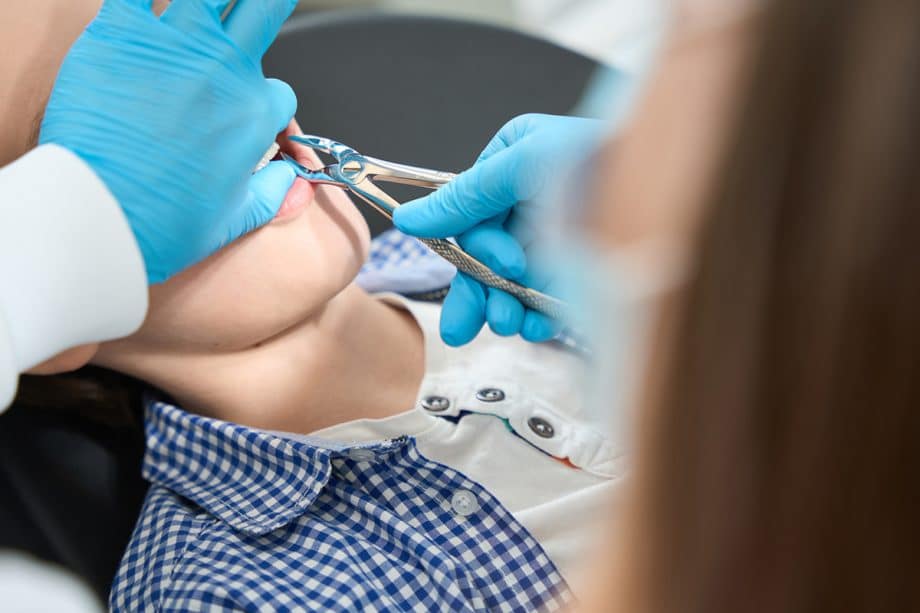Wisdom teeth extraction is one of the most common oral surgery procedures. Today, oral surgeons maximize their patients' comfort and minimize healing time using advanced techniques. Most patients heal from wisdom teeth extraction in one to two weeks.
About Wisdom Teeth
Wisdom teeth are the third set of adult molars that commonly develop in the back of our jaws. Most patients have wisdom teeth, but very few have enough space in their jaws for these teeth to erupt properly. Teeth that can't erupt normally are called “impacted.” Impacted teeth may sit at an angle where proper eruption is not possible. Or, they may be trapped in the bone or beneath the gum.
If you have one or more impacted wisdom teeth, these teeth can become infected and can contribute to headaches and jaw pain. In some cases, they can push on adjacent teeth causing discomfort and contributing to shifting of teeth. The wisdom teeth may also partially erupt, becoming more difficult for patients to clean or for a dentist to fill.
The Wisdom Teeth Extraction Procedure
Many of our valued patients choose to undergo this procedure under sedation anesthesia. We have multiple sedation options for your comfort.
Once the procedure starts, after administering local anesthesia to eliminate discomfort, the oral surgeon will make a small incision in the gum to expose each wisdom tooth. The oral surgeon may need to remove portions of bone that block each tooth as well.
The oral surgeon then gently removes each tooth using specialized instruments. The oral surgeon may need to section a tooth into pieces to remove it completely.
The oral surgeon then cleans the tooth socket where each wisdom tooth used to be located. Dr. Abel uses platelet-rich fibrin (PRF) treatment after removing the teeth to speed the healing process and to help prevent a dry socket.
Finally, the oral surgeon places a gauze packing over the sites to promote blood clot formation. The entire procedure may take as little as 1 hour for all four wisdom teeth to be extracted, or perhaps longer for removal of impacted teeth.
Recovery From Wisdom Teeth Extraction
If you received sedation anesthesia during your appointment, you will need a responsible adult to drive you home. Plan to rest for the remainder of the day. You should plan to apply cold compresses that night to help relieve discomfort and swelling.
You will likely experience pain from the surgical sites, as well as swelling and mild bruising over the first few days following wisdom teeth removal. You should plan to refrain from strenuous physical activity or contact sports during this period.
Self-Care Tips
Use over-the-counter pain medication according to your oral surgeon's directions. You may experience reduced discomfort and swelling if you use extra pillows to sleep on the first night after the procedure. Try to rest as much as possible for the first few days.
Do not rinse, spit, consume hot foods and beverages, or drink alcohol for at least 24 hours after the procedure. For the first week following the procedure, avoid smoking or drinking through straws. Following these instructions will promote the formation of healthy blood clots and help prevent “dry socket.”
Within one to two weeks, you will recover from the procedure. If you have any unusual symptoms or do not feel better, call your oral surgeon's office for help.
Frequently Asked Questions About Wisdom Teeth Removal
When is the best time to remove wisdom teeth?
Wisdom teeth removal can happen at any age. Many oral surgeons will recommend removing wisdom teeth in the patient's teens or early twenties, as patients may recover more quickly from the procedure at this age and experience fewer complications.
Can I go back to work after getting my wisdom teeth removed?
It is best to wait at least a day before returning to work and possibly longer if your job requires physical exertion or a lot of talking.
Call Manchester Oral Surgery
Wisdom teeth surgery may sound intimidating, but it can help prevent future problems with your teeth and gums. If you follow your oral surgeon's discharge instructions, you should heal well in most cases. Please call our Manchester, NH, office at 603-622-9441 for more information or to schedule a consultation to further discuss wisdom teeth removal.

